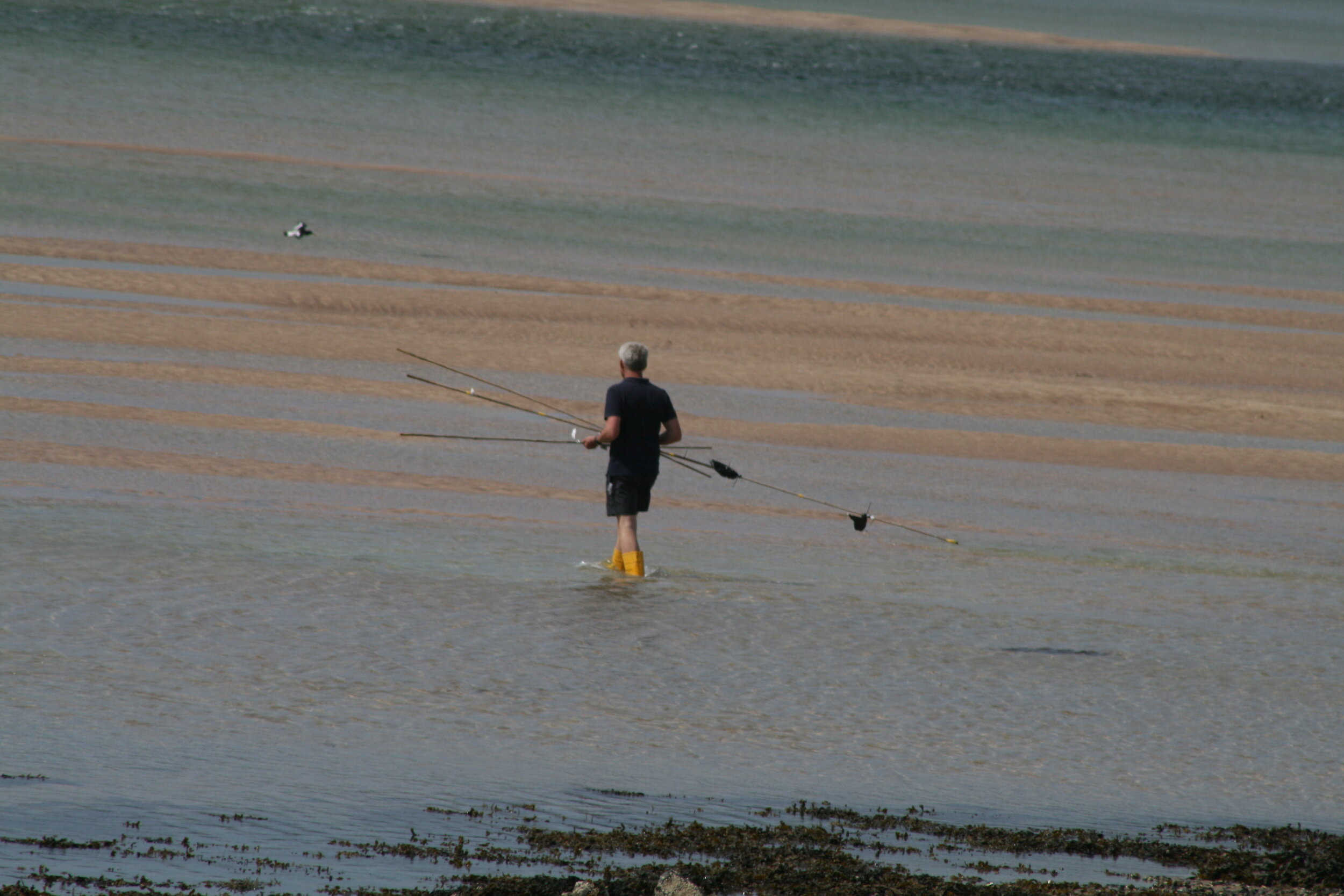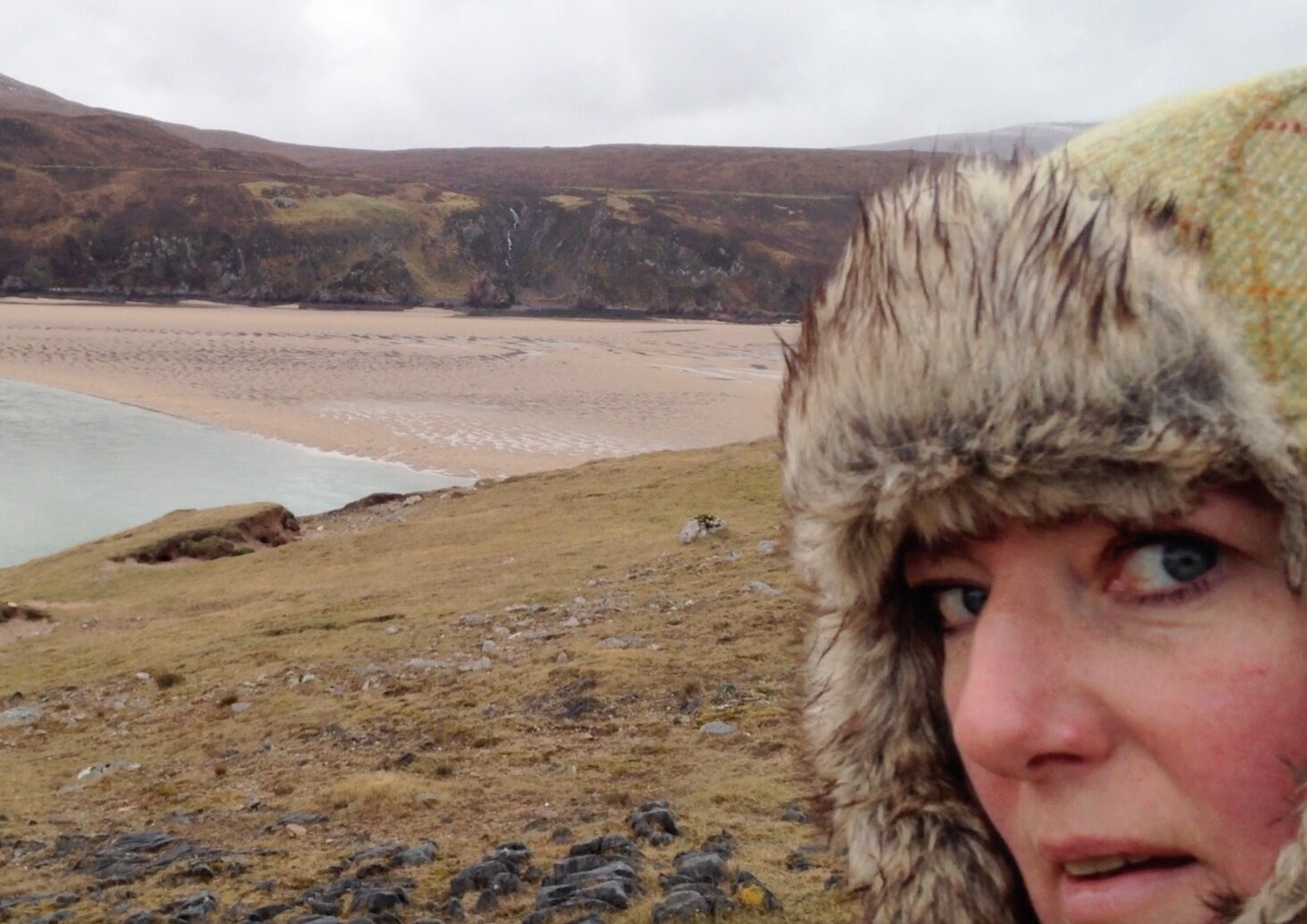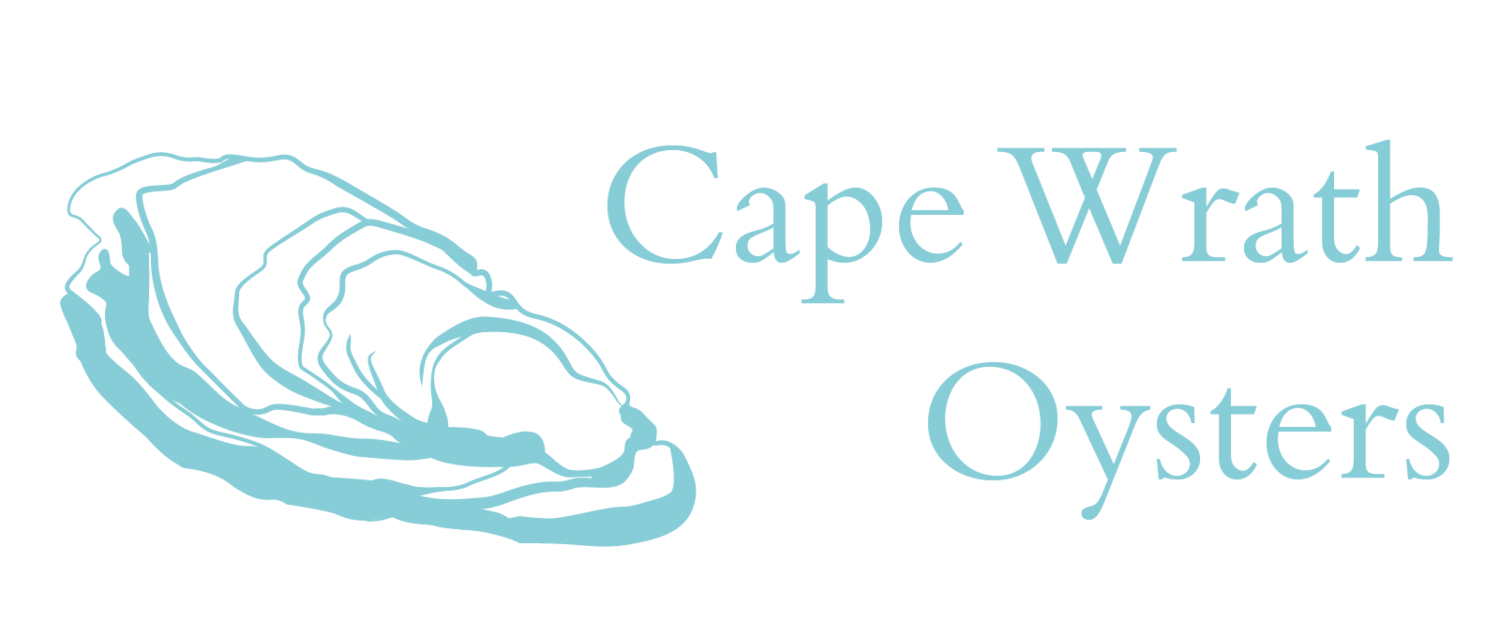
We are an artisanal, traditional oyster farm.
Photograph courtesy of Ann Chown
Patrick and Lucy Blow founded Cape Wrath Oysters in 2014 in the remote Kyle of Durness, a narrow inlet on Scotland’s most northwesterly point. Oysters are fantastic creatures and an exciting food - their flavour, texture and quality differentiated by the environment they grow in.
We are passionate about oysters and their great sustainability credentials. Together we have around fifty years of broad experience in seafood, from fish farming in Africa and around the globe to wild-capture expertise, including the sourcing, quality, processing and retail of farmed and wild seafood.
Oysters eat natural foods that they filter from the sea. Farming them is hard work but can be lots of fun. We don’t even mind working outside in the wild weather that Cape Wrath is famous for.
We’ll send oysters direct to your home, restaurant or shop, anywhere in the UK.
Oysters take three to five years to grow to market size in the UK and our artisanal business is still small. Currently we can produce around 150,000 oysters each year. Our team of three is steadily building the farm’s capacity and we aim to soon be able to produce 400,000 oysters each year, using old-fashioned methods.
Every oyster farm and its produce is different, each influenced by the balance of sea and fresh water, the foods available to the oysters, the water chemistry, temperature, site characteristics and the weather. These factors interplay to impart Cape Wrath Oysters with their own distinctive characteristics and sweet, briny flavour.
Images taken in 2014 of Patrick measuring the depth and change of the tidal currents on the same site that the farm now sits on today.








Lucy……the photobomber!

Lucy and Patrick both work in the seafood industry focussing on sustainability and best practice seafood production. We have done this for a combined fifty years. Beginning in the mid 1990s, Patrick established and ran fish farming businesses in Zimbabwe and Uganda producing tilapia, a hardy freshwater fish that’s indigenous to Africa and which can thrive on mainly vegetable diets. More recently Patrick has worked part-time as Aquaculture Specialist for a leading UK retailer, helping to shape its global supply chains. Lucy has for over 20 years been pivotal in the UK’s sustainable seafood movement whilst working for a major fish import and processing business supplying UK retail and foodservice. She specialises in the fishery sustainability of wild capture species such as tuna and Alaskan salmon. Lucy uses her expertise to help influence fishery improvements in supply chains around the world.
We both understand the challenges of achieving sustainability in the context of seafood, including the need for consistent access to good quality seafood to help sustain our global population, balanced with the need to reduce pressure on finite wild resources and making the production of renewable protein production the best it can be.
Oysters are amongst the most sustainable of seafoods. As filter-feeding bivalve molluscs, they live low in their food chain, and the lower in these chains food comes from, the more plentiful, renewable and therefore sustainable it tends to be. Oysters feed on naturally available single celled algae brought in on each tide. They do not require any external feed inputs so the only food being used to grow the oysters is that which is naturally present in the sea.
With sustainable product being a primary objective, we wanted to build an artisanal farming business in Scotland, which is home. The production of shellfish is a natural fit, both for sustainable seafood production and for the Scottish coastline in terms of low impact farming suited to the natural environment.
Oyster growing is still quite new to us and we are building our skills and learning a lot in the process! We began to establish our oyster farming business in 2014. Our first seed oysters were delivered in 2015 and we have stocked the farm annually since then.
We are also smallholders near Inverness, where we are focusing on creating woodland and increasing the natural biodiversity of our small patch of land.
In addition to our oyster farm, we both work as consultants in the seafood industry. Patrick sits on various seafood technical committees and Lucy is a Member of The Fishmongers’ Livery Company in the City of London.




